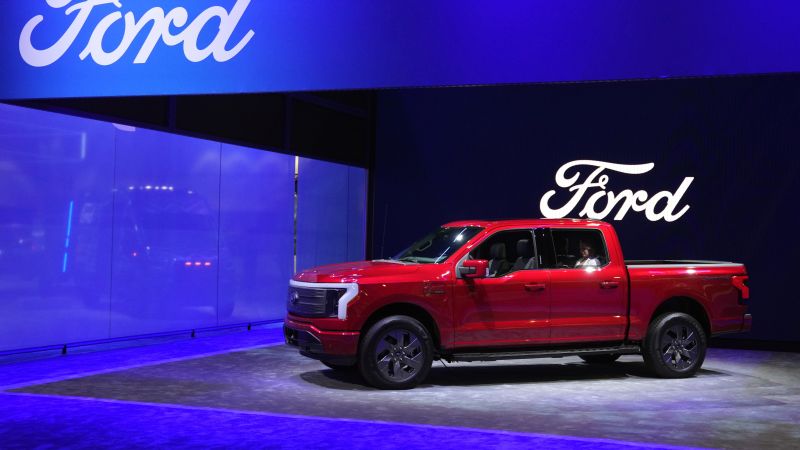Ford’s electric vehicle unit reported significant losses in the first quarter, totaling $1.3 billion. This loss equated to $132,000 for each of the 10,000 vehicles sold during that time period, which contributed to the overall decline in earnings for the company. Ford has plans to transition from gas-powered vehicles to electric vehicles, similar to other automakers. However, Ford is the only traditional automaker to provide specific results for its retail EV sales. This indicates the financial challenges facing the EV business at Ford and other automakers.
The EV unit, known as Model e, sold 10,000 vehicles in the quarter, a 20% decrease from the previous year. Revenue also plummeted by 84% to approximately $100 million, mainly due to price cuts in the industry. The $1.3 billion loss before interest and taxes highlighted the profitability struggles in the EV market at Ford. Ford’s CFO, John Lawler, noted that a price war among EVs has made it challenging to turn a profit. Despite cost reductions on vehicles like the Mustang Mach-E, revenue is declining at a faster rate than costs are being cut.
In 2023, Ford Model e reported a full-year EBIT loss of $4.7 billion on sales of 116,000 EVs, equating to an average loss of $40,525 per vehicle. The Model e unit is not the only segment handling electric vehicle sales for Ford, as some are also sold through the Ford Pro unit, which focuses on fleet sales to businesses and government entities. Despite the losses in the EV sector, Ford remains optimistic about its future profitability in EVs with upcoming models.
Ford Pro, primarily selling traditional internal combustion vehicles, was a significant profit driver for Ford in the quarter, posting EBIT of $3 billion, a substantial increase from the previous year. Conversely, Ford Blue, responsible for sales of gasoline-powered cars to consumers, experienced a decline in sales and revenue, resulting in a 2/3 decrease in EBIT. The combined profits from Ford Blue and Ford Pro were relatively consistent with the previous year, but the heightened losses at Model e led to an overall decline in Ford’s net income.
General Motors and Stellantis, Ford’s industry rivals, provided contrasting updates on their EV businesses. General Motors expects its North American EV business to become profitable in the second half of the year, while Stellantis announced that its European EV business was already profitable in the previous year. Tesla, the largest EV maker globally, reported a decline in adjusted earnings and revenue, showcasing the competitive landscape in the EV market.
Despite the challenges faced by Ford’s EV unit, CEO Jim Farley expressed confidence in the company’s ability to make changes and achieve profitability in the EV business in the near future. Ford’s focus on transitioning to electric vehicles reflects the broader industry trend towards sustainability and innovation in automotive technology. As Ford navigates the evolving landscape of the automotive industry, its strategic decisions and adjustments to the EV business will be crucial in driving future profitability and growth.


